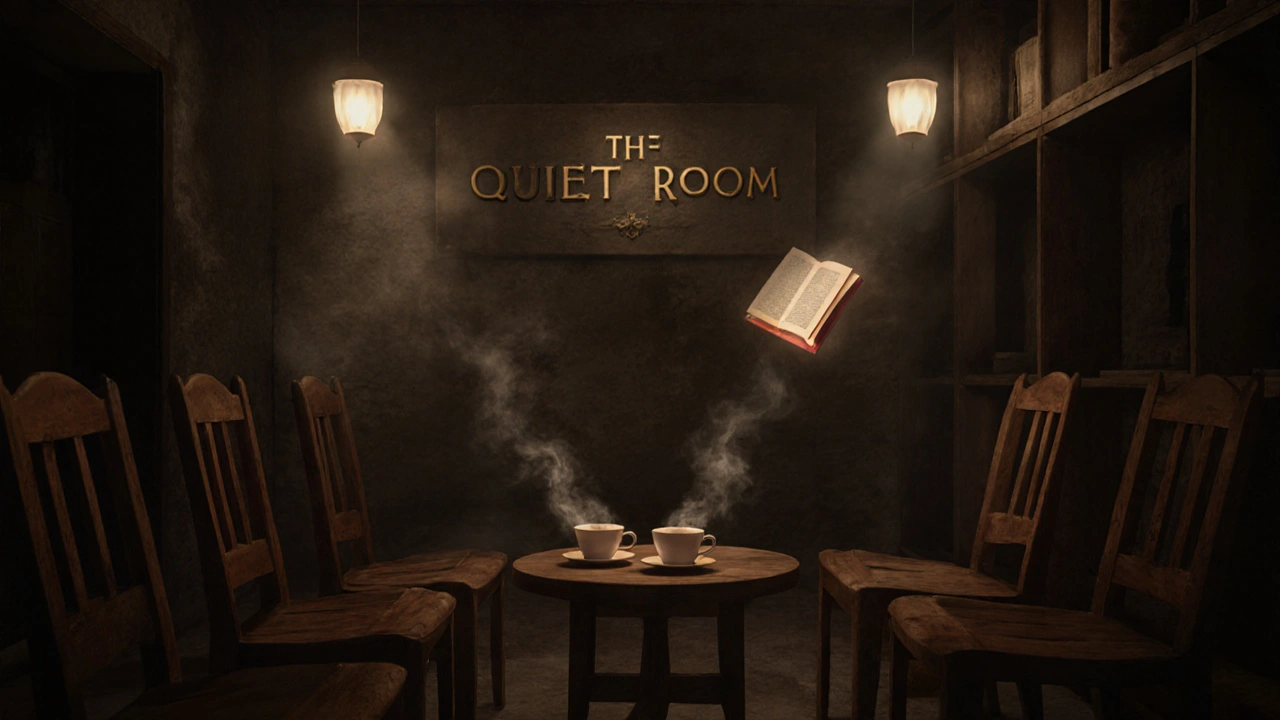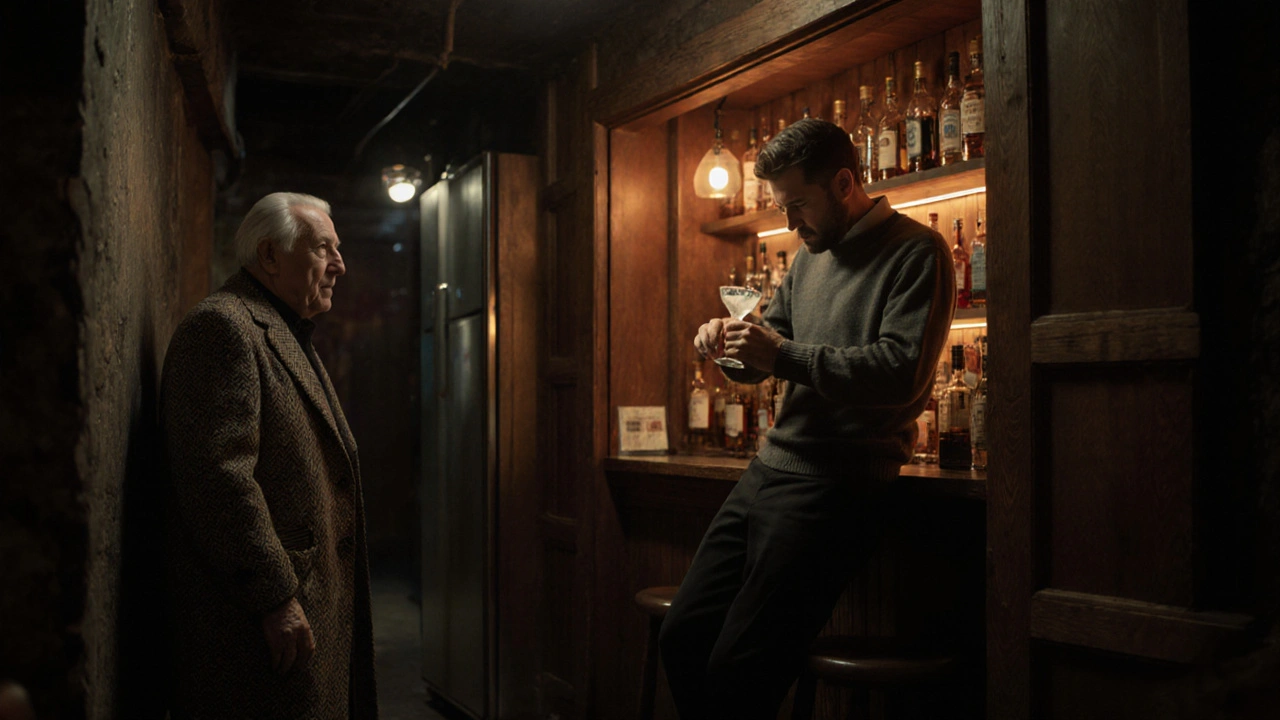Most tourists in London stick to the same five pubs in Soho and the crowded cocktail spots in Shoreditch. But if you’ve been here more than once, you know the real magic happens where the maps don’t reach. The city’s best nights aren’t advertised on Instagram. They’re whispered about over a pint at 2 a.m. in a basement that doesn’t have a sign. This is the London locals know - the one with no bouncers, no dress codes, and no line out the door.
Where the locals go after midnight (and why you won’t find it on Google)
Start with The Blind Pig a speakeasy-style bar hidden behind a fridge door in a tiny alley off Neal’s Yard in Covent Garden. You don’t book. You just show up. If the door’s open, you’re in. If it’s closed, you wait. No one tells you why. That’s the rule. Inside, it’s dim, warm, and smells like old wood and gin. The bartender doesn’t ask what you want - he asks what you’re feeling. Then he makes you something you didn’t know you needed. It’s not fancy. It’s not loud. But it’s the kind of place where you’ll end up talking to a retired jazz drummer who used to play with Nina Simone.
Then there’s The Laundry a hidden bar inside a former laundrette in Peckham, accessed through a back alley and a flickering neon sign that says "Wash & Fold". The music? Vinyl only. The drinks? Craft cocktails made with herbs from the rooftop garden. The vibe? Like you stumbled into someone’s living room - if their living room had a 1970s jukebox and a wall covered in Polaroids of strangers who became friends.
These aren’t bars you find by searching "best cocktails London." They’re places you find because someone said, "You gotta try this."
How to spot a real local haunt (and avoid the tourist traps)
Here’s the trick: if the bar has a website, a menu on Instagram, or a reservation system, it’s probably not secret anymore. Real hidden spots don’t advertise. They rely on word of mouth. Look for these signs:
- No sign outside - just a door, maybe with a small symbol painted on it
- No staff in uniforms - just people who look like they live nearby
- No happy hour - they serve drinks at the same price all night
- No queue - if you see one, walk away
- Music that’s not on Spotify playlists - think jazz, soul, or obscure 90s Britpop
One of the best ways to find these places? Talk to the guy behind the counter at your local corner shop. Ask him where he goes on a Friday night. He’ll probably laugh and say, "You don’t want to go there." Then he’ll give you directions anyway.
The late-night snack culture only locals understand
London’s nightlife doesn’t end with a drink. It ends with food. And not the kind you get from a kebab shop at 3 a.m. - the kind you get from a tiny kitchen tucked behind a pub that only opens after midnight.
At The Night Owl a 24-hour diner hidden inside a converted bookshop in Camden, open only to those who know the password: "I need a good night’s sleep", you can get crispy chicken sandwiches with pickled chillies and miso-glazed fries. The owner, Maria, has been serving these since 2008. She doesn’t take cards. Cash only. And if you ask for ketchup, she’ll look at you like you just insulted her grandmother.
In Hackney, there’s a van parked outside a closed-down cinema that sells salted caramel dumplings at 4 a.m. No name. No sign. Just a handwritten chalkboard that says "Dumplings - 3 for £5". Locals wait in line. Tourists walk past. By 4:30 a.m., it’s gone.

What Londoners actually do on a Saturday night (spoiler: it’s not clubbing)
Most people assume London nightlife = clubs, EDM, and bottle service. But the truth? Most locals skip the clubs entirely. Instead, they do this:
- Start at a quiet pub in Brixton with live blues at 9 p.m.
- Move to a rooftop bar in Dalston with no name, just a single string of fairy lights
- End at a 24-hour bookshop in Islington where people read poetry aloud at midnight
There’s a place in Walthamstow called The Quiet Room a basement space with no alcohol, no music, just chairs, books, and tea. People go there to sit in silence. Some come to read. Others just need to be around other humans without talking. It’s open until 2 a.m. on weekends. No one asks why you’re there.
How to blend in (and not look like a tourist)
You don’t need to wear all black or carry a leather satchel. You just need to know the rules:
- Don’t ask for the "best" drink. Ask, "What are you drinking?"
- Don’t take photos unless you’re invited. Most hidden bars hate it.
- Don’t talk loudly. London’s secret spots thrive on quiet energy.
- Don’t try to find them on Google Maps. They’re not there for a reason.
- Don’t expect to stay long. These places aren’t designed for tourists. They’re designed for moments.
One local told me: "If you’re looking for a night out, you’ll find one. If you’re looking for a night that sticks with you, you’ll have to work for it."

When to go - and when to stay home
Secret spots don’t run on tourist schedules. They run on mood.
- Weekdays (Tuesday-Thursday) are best. Fewer people, better service, more attention from the bartender.
- Friday nights? Too busy. Even the hidden ones get crowded.
- Saturdays? Only go if you’re with someone who knows the place. Otherwise, you’ll be lost.
- Winter months (November-February) are the real secret season. Fewer tourists. More warmth. More stories.
And if you show up on a Sunday? You might find the place closed. That’s not a glitch - it’s by design. Locals need their rest too.
Why this matters - and why London’s soul is in these places
London’s real identity isn’t in the Big Ben selfies or the double-decker bus tours. It’s in the quiet corners where people come to be themselves. These bars, kitchens, and basements aren’t businesses. They’re communities. They’ve survived rent hikes, lockdowns, and gentrification because they’re built on trust, not marketing.
When you walk into a place like The Blind Pig or The Quiet Room, you’re not just getting a drink. You’re stepping into a story someone else has been telling for years. And if you’re lucky, you’ll become part of it.
That’s the real secret of London nightlife. It’s not about where you go. It’s about who you become when you stop looking for the spotlight - and start listening for the whispers.
How do I find secret bars in London without a local guide?
Start by asking people who work in local shops, cafes, or bookstores - especially those who’ve been there for years. Look for places with no signs, no websites, and no online menus. Join local Facebook groups like "London Underground Bars" or "Secret London Nights" - they’re full of real tips, not ads. And never trust a "hidden bar" that’s listed on TripAdvisor or Google Maps. If it’s easy to find, it’s not secret anymore.
Are these secret spots safe to visit alone?
Yes, most are safer than crowded tourist bars. These places have regulars who know each other. The vibe is calm, not chaotic. But always trust your gut. If a place feels off, leave. Don’t feel pressured to stay. Many of these spots are in residential areas - so if you’re unsure, go with a friend or take a taxi. Avoid going after 3 a.m. unless you know the area well.
Do I need to dress up to go to these places?
No. Most of these spots have zero dress code. Jeans, a hoodie, or even your work clothes are fine. The only rule? Don’t wear anything that looks like you’re trying too hard. Locals value comfort over style. If you’re dressed like you’re going to a club, you’ll stand out - and not in a good way.
Can I book a table or make a reservation?
Almost never. These places operate on a first-come, first-served basis. Some might have a small waiting list if you call ahead, but don’t expect confirmation. The whole point is spontaneity. If you’re told to book, it’s probably not a real secret spot. Walk in, wait if needed, and be patient. The experience is worth it.
What’s the average cost for a drink at these hidden bars?
Most charge between £8 and £14 for a cocktail or pint - similar to regular bars, but often with better ingredients. Some places, like The Quiet Room, don’t even serve alcohol. Tea and snacks cost £3-£5. The value isn’t in the price - it’s in the experience. You’re not paying for branding. You’re paying for time, conversation, and a moment that feels real.
Why don’t these places have websites or social media?
Because they don’t want to be found by tourists. Many of these spots were started by people who hated how social media turned their favorite hangouts into crowded photo ops. They prefer to keep things small, quiet, and personal. If you stumble on one, treat it like a gift - not a checklist item.
Next steps: How to start your own secret London night
Here’s your simple plan:
- Choose a Tuesday or Wednesday night - avoid weekends.
- Walk into a local pub in a neighborhood you’ve never explored - say, Peckham, Walthamstow, or Brixton.
- Ask the bartender: "Where do you go when you’re off duty?"
- Follow their advice. Don’t Google it.
- Stay until you hear a story you won’t forget.
You don’t need a guide. You just need to be curious. And maybe, just maybe, you’ll find the place that makes you fall in love with London all over again.
